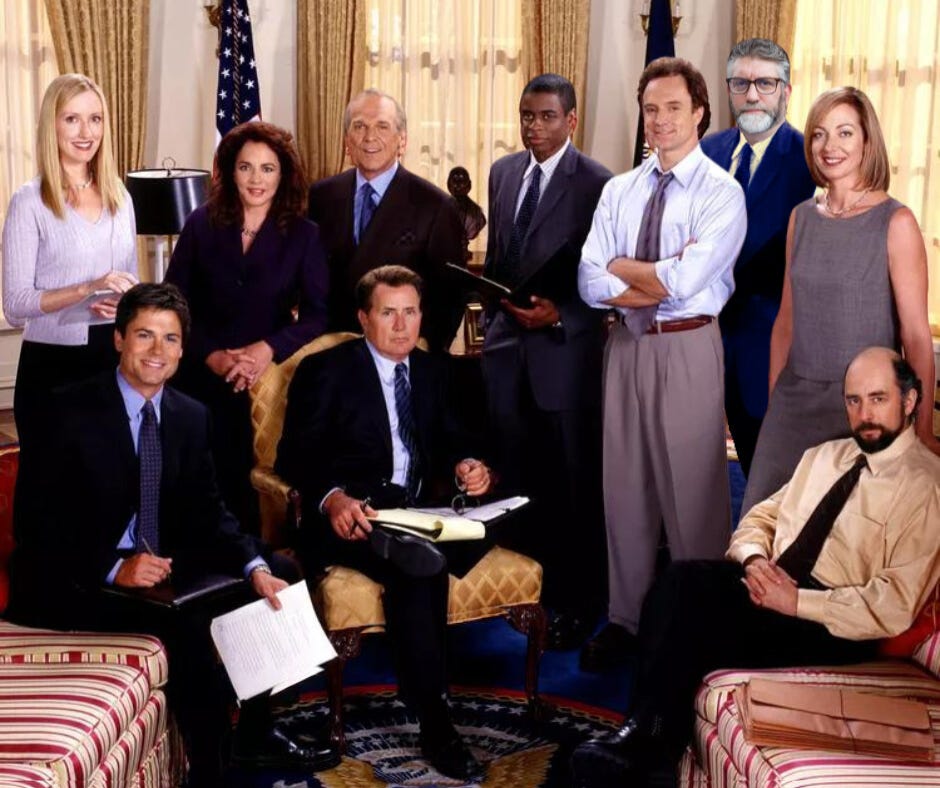The Blame Game
Season 3, Episode 18
Star Wars teaches excellent lessons in empathy & leadership, & I love incorporating these lessons into the workplace. I’ve written about Star Wars here & on my Substack. Jedi leadership connotes thoughtfulness, fairness, & our all being part of one power—the Force. The West Wing shares this ethos & adds heavy doses of kindness, generosity, & justice. In Season 3, Episode 18, there is a minor plotline about a microchip company called Antares that I have always thought about.
Antares experiences a malfunction with CPUs it sells to PC companies. The “bug” initiates a recall of 80 million computers, driving Antares' stock down & likely into bankruptcy.
President Bartlett talks to his Chief of Staff Leo McGarry, saying that Antares “was hurt by their own carelessness.” Leo answers the President, “Carelessness doesn't have to exist for a mistake to be made.” Well said.
In West Wing’s way, they find an elegant solution to save Antares without “bailing them out” financially but instead guaranteeing government contracts to ensure their survival from the crisis.
“No one loses alone. Ever!”
Over the years, I’ve overseen countless technology incidents resulting in system outages requiring a “root-cause analysis” after remediation. Some leaders expect “names,” as in, “Who did this?” or “Did you reprimand the person who did this?” And yes, sometimes people make mistakes that require a difficult conversation. Other times, it isn’t appropriate to lay blame on one person. As my friend Vic Pepe says in his book, “Work through losses - together. No one loses alone. Ever!”
There are so many enterprise pressures that can cause an issue to arise. Almost always, the root pressure is time. We always deliver urgently, including adding to our tech debt, reducing our QA time, or delivering with “known issues.” While it may be true that a line of code or a network device was programmed incorrectly, this does not mean the engineer was careless or should be admonished.
All too often, leaders want names. The pattern, of course, is that non-technical leaders wish to name names. They don’t understand the complexity of their enterprise and how managing punitively will create a negative environment driven by fear instead of collaboration.
I covered this in my essay about Crowd Strike. It’s so easy to think that one person caused that terrible outage. However, the reality is that it resulted from an enterprise culture that allowed that error to occur. It was not the carelessness of one person. In my view, it was an issue with overall leadership.
Win Together, Lose Together
Working with your teams during a crisis is about demonstrating that we're in it together. We win together - we lose together. If we promote code that has unexpected consequences, we fix it together. If a teammate is underperforming & an incident highlights it, then let’s work together to raise that teammate up. It’s a lesson, on many levels, that that person & the team will remember forever.
Carelessness does not have to occur for a mistake to be made.



